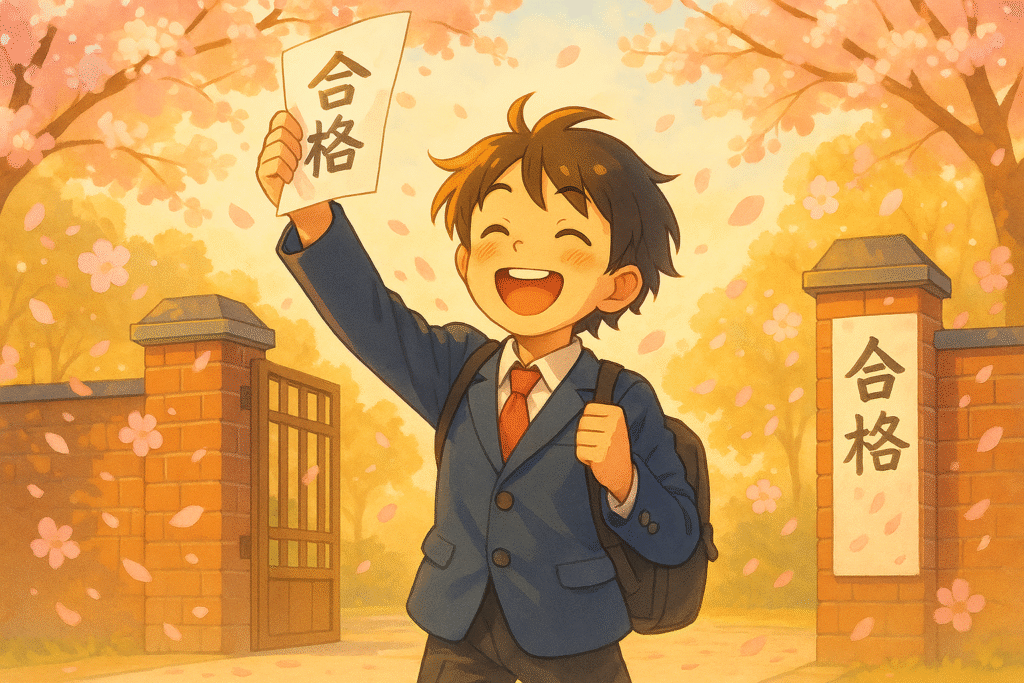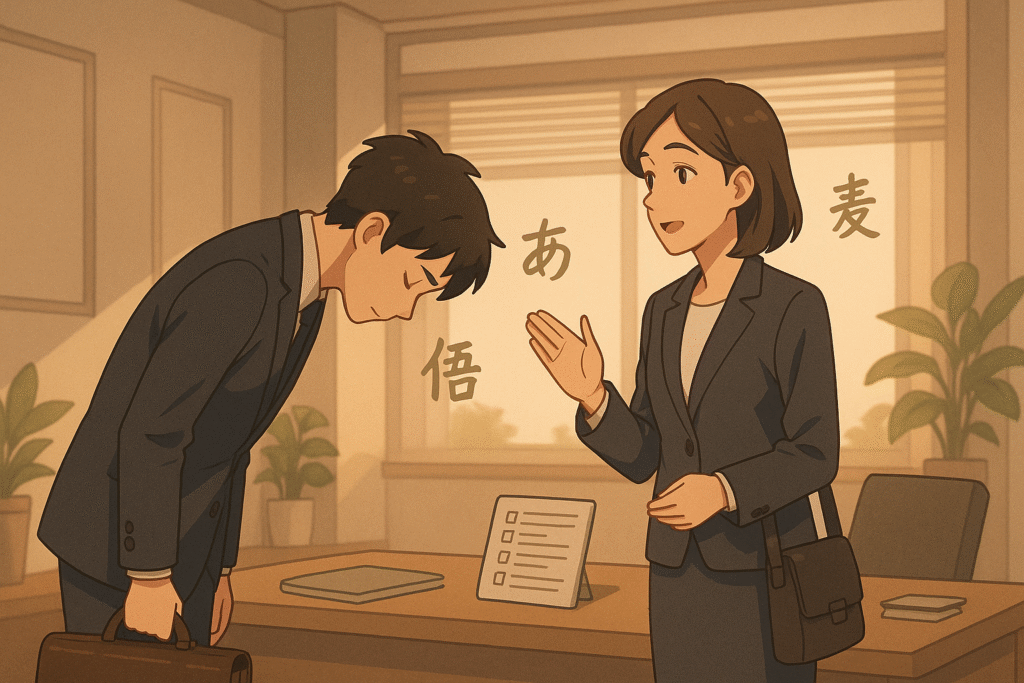Ever found yourself wanting to strike up a conversation with a Japanese friend or colleague, but frozen at the most basic starting point? Knowing how do you say how are you in Japanese is your gateway to meaningful connections in any Japanese-speaking environment.
Unlike English, where “How are you?” is a universal greeting, Japanese culture offers a rich variety of situational greetings that reflect their attentiveness to social context, relationships, and even seasons. Mastering these expressions will not only help you communicate more naturally but also demonstrate your cultural awareness and respect.
“The way we greet each other sets the tone for our entire interaction. In Japanese culture, choosing the right greeting is like selecting the perfect key to unlock a meaningful conversation.”
In this comprehensive guide, I’ll walk you through the many ways to ask “how are you” in Japanese, from formal business settings to casual chats with friends. You’ll learn exactly when to use each expression, how to pronounce it correctly, and how to respond when someone greets you.
Want to start learning Japanese right away?
Access our Free Study Guides with grammar explanations, vocabulary lists, and study tips. All at no cost.
The Cultural Context: Why “How Are You” Is Different in Japanese
Before diving into specific phrases, it’s important to understand that directly asking how do you say how are you in Japanese requires cultural context. In Japanese society, greetings often:
- Reflect social hierarchy – Different expressions for superiors, equals, and juniors
- Consider relationship closeness – Varying levels of formality based on familiarity
- Acknowledge situations – Specific greetings for specific contexts
- Show seasonal awareness – Greetings may change with the seasons
While English speakers might ask “How are you?” multiple times a day as a casual greeting, Japanese people often use situational greetings instead. When they do ask about someone’s well-being, it typically comes from genuine concern rather than as a conversational formality.
Formal Ways to Say “How Are You” in Japanese
In professional settings, job interviews, or when speaking with elders or superiors, you’ll want to use these polite expressions:
1. お元気ですか?(O-genki desu ka?)
This is the most common textbook translation for how do you say how are you in Japanese and is perfectly acceptable in formal situations.
When to use it: When meeting someone you haven’t seen for a while, especially someone older or in a higher position.
Example conversation:
You: 山田さん、お元気ですか?
(Yamada-san, o-genki desu ka?)
"Mr. Yamada, how are you?"
Yamada: はい、おかげさまで元気です。鈴木さんは?
(Hai, okagesama de genki desu. Suzuki-san wa?)
"Yes, I'm well, thank you. And you, Mr. Suzuki?"
2. いかがお過ごしですか?(Ikaga o-sugoshi desu ka?)
This elegant expression literally asks “How have you been spending your time?” and conveys genuine interest in the other person’s life.
When to use it: In business emails, formal letters, or when speaking with important clients or respected elders.
Example:
お忙しい中、いかがお過ごしですか?
(Oisogashii naka, ikaga o-sugoshi desu ka?)
"How have you been keeping in the midst of your busy schedule?"
3. お変わりありませんか?(O-kawari arimasen ka?)
This phrase literally asks if there have been any changes, implying “Is everything still good with you?”
When to use it: When reconnecting with someone you haven’t seen in months or years, especially in business contexts.
Example:
長い間お会いしませんでしたが、お変わりありませんか?
(Nagai aida o-ai shimasen deshita ga, o-kawari arimasen ka?)
"It's been a long time since we've met, how have you been?"
4. ご無沙汰しております (Go-busata shite orimasu)
While not directly asking “how are you,” this phrase acknowledges a long absence and is often used as an opening before asking about someone’s well-being.
When to use it: In emails or conversations after not being in touch for a long time (typically more than 3 months).
Example:
ご無沙汰しております。お元気でお過ごしでしょうか?
(Go-busata shite orimasu. O-genki de o-sugoshi deshou ka?)
"It's been a while since we've been in touch. I hope you've been well?"
Casual Ways to Ask “How Are You” in Japanese
With friends, peers, or in relaxed settings, these more informal expressions are appropriate:
5. 元気?(Genki?)
This is the simplified, casual version of “O-genki desu ka?” and is commonly used among friends.
When to use it: With close friends, classmates, or colleagues you have a good relationship with.
Example:
久しぶり!元気?
(Hisashiburi! Genki?)
"Long time no see! How are you?"
6. 最近どう?(Saikin dou?)
This casual phrase asks “How have things been lately?” and is perfect for catching up with friends.
When to use it: When reconnecting with friends you haven’t seen in a while.
Example:
最近どう?新しい仕事は楽しい?
(Saikin dou? Atarashii shigoto wa tanoshii?)
"How have you been lately? Is your new job fun?"
7. 調子はどう?(Choushi wa dou?)
This expression asks specifically about someone’s condition or state and can refer to health, work, or general life circumstances.
When to use it: When you know someone has been dealing with a specific situation (health issues, busy project, etc.).
Example:
風邪は良くなった?調子はどう?
(Kaze wa yoku natta? Choushi wa dou?)
"Has your cold gotten better? How are you feeling?"
8. 元気にしてた?(Genki ni shiteta?)
This phrase asks if someone has been keeping well over a period of time.
When to use it: When reuniting with friends after a moderate period without contact.
Example:
元気にしてた?大学生活はどう?
(Genki ni shiteta? Daigaku seikatsu wa dou?)
"Have you been well? How's university life?"
If you’re interested in mastering the nuances of Japanese conversation, our guide on Japanese honorifics will help you navigate the complex world of respectful speech.

Situational Greetings That Replace “How Are You”
In many cases, Japanese people use context-specific greetings instead of directly asking how do you say how are you in Japanese:
9. お疲れ様です (Otsukaresama desu)
This expression acknowledges someone’s hard work and is commonly used in workplace settings.
When to use it: When greeting colleagues during or after work hours.
Example:
お疲れ様です。プロジェクトはどう進んでいますか?
(Otsukaresama desu. Purojekuto wa dou susunde imasu ka?)
"Thank you for your hard work. How is the project progressing?"
10. 久しぶり (Hisashiburi) / 久々 (Hisabisa)
These expressions mean “it’s been a while” and often replace asking how someone is.
When to use it: When meeting someone you haven’t seen recently.
Example:
久しぶり!元気にしてた?
(Hisashiburi! Genki ni shiteta?)
"Long time no see! Have you been well?"
11. いつもお世話になっております (Itsumo osewa ni natte orimasu)
This polite expression acknowledges ongoing support or assistance from someone.
When to use it: When greeting business partners or clients with whom you have an ongoing relationship.
Example:
いつもお世話になっております。先日のご提案について、ご検討いただけましたか?
(Itsumo osewa ni natte orimasu. Senjitsu no go-teian ni tsuite, go-kentou itadakemashita ka?)
"Thank you for your continued support. Have you had a chance to consider the proposal from the other day?"Love Japan? Stay in the Loop!
Hi, I’m Jesse! Join 100+ learners and get my best Japanese learning tips straight to your inbox.
How to Respond When Asked “How Are You” in Japanese
Knowing how do you say how are you in Japanese is only half the conversation. Here’s how to respond appropriately:
Formal Responses:
1. おかげさまで元気です (Okagesama de genki desu)
This gracious response acknowledges that your well-being comes partly from the support of others.
Example:
おかげさまで元気です。いつもご支援ありがとうございます。
(Okagesama de genki desu. Itsumo go-shien arigatou gozaimasu.)
"I'm well, thanks to you. Thank you for your continued support."
2. 特に変わりはありません (Tokuni kawari wa arimasen)
This expression indicates that nothing particular has changed (usually positive).
Example:
特に変わりはありません。いつも通り忙しくしております。
(Tokuni kawari wa arimasen. Itsumo doori isogashiku shite orimasu.)
"Nothing particular has changed. I've been busy as usual."
Casual Responses:
3. 元気だよ!(Genki da yo!)
A straightforward, energetic response among friends.
Example:
元気だよ!最近、新しい趣味を始めたんだ。
(Genki da yo! Saikin, atarashii shumi o hajimeta n da.)
"I'm good! I recently started a new hobby."
4. まあまあかな (Maa maa kana)
A more reserved response indicating things are just okay.
Example:
まあまあかな。最近ちょっと忙しくて。
(Maa maa kana. Saikin chotto isogashikute.)
"I'm doing okay. Been a bit busy lately."
If you’re looking to expand your casual Japanese vocabulary, our article on learning Japanese through anime offers entertaining ways to pick up natural expressions.
Regional Variations: How “How Are You” Changes Across Japan
Just as English has regional differences, how do you say how are you in Japanese varies across Japan:
Kansai Region:
In the Kansai area (including Osaka and Kyoto), people often use:
もうかりまっか? (Moukarimakka?)
This uniquely Kansai greeting literally asks “Are you making a profit?” but functions as “How are you?” in business settings, revealing the region’s merchant history.
Hokkaido:
In Japan’s northernmost island, you might hear:
なげたいべか? (Nagetai beka?)
This dialect expression roughly translates to “How’s it going?” with a distinctive Hokkaido accent.
Cultural Tips for Using “How Are You” in Japanese Conversations
When considering how do you say how are you in Japanese, remember these cultural nuances:
- Genuine Interest: In Japanese culture, asking about someone’s well-being typically comes from genuine concern rather than as a mere formality.
- Follow-Up Questions: After the initial greeting, specific follow-up questions about family, work, or recent events show true interest.
- Seasonal Awareness: Incorporating seasonal references into greetings shows cultural sensitivity:
暑い日が続きますが、お元気ですか? (Atsui hi ga tsuzukimasu ga, o-genki desu ka?) "Despite these continuing hot days, how have you been?" - Body Language: Accompanying your greeting with appropriate bowing (15° for casual, 30° for formal) enhances your communication.
- Timing Matters: Avoid asking about someone’s well-being if they’re clearly in a hurry or in the middle of a task.
For those serious about mastering natural Japanese conversation, our comprehensive guide on how to learn Japanese without a teacher offers practical tips for self-study.
Practical Exercises to Master Japanese Greetings
To internalize how do you say how are you in Japanese, try these practice exercises:
1. Context Matching
Match the appropriate greeting to these situations:
- Meeting your professor after summer break
- Greeting a colleague first thing Monday morning
- Reconnecting with a childhood friend on social media
- Emailing a client you haven’t contacted in 6 months
2. Daily Practice
Choose one new greeting expression each day and use it in an imaginary dialogue. Record yourself and check your pronunciation.

3. Observation Exercise
If you have access to Japanese media, note how characters greet each other in different situations. What expressions do they use, and in what contexts?
Common Mistakes to Avoid When Asking “How Are You” in Japanese
When learning how do you say how are you in Japanese, watch out for these common pitfalls:
- Direct Translation Trap: Don’t literally translate “How are you?” in every situation. Context-appropriate greetings are better.
- Formality Mismatches: Using casual expressions like “元気?” with superiors can appear disrespectful.
- Overusing “お元気ですか?”: While correct, using this standard phrase in every situation can sound textbook-ish to native speakers.
- Neglecting Seasonal Greetings: Missing opportunities to incorporate seasonal references can make your Japanese sound less natural.
- Forgetting Reciprocity: After responding to “How are you?”, remember to ask about the other person in return.
Resources for Mastering Japanese Greetings
To continue perfecting how do you say how are you in Japanese, check out these resources:
- Our comprehensive Japanese study guides offer specialized practice for mastering natural conversation
- Language exchange apps where you can practice with native speakers
- Japanese dramas and films for observing natural greeting patterns
- Audio recordings of native greetings to improve your pronunciation
Frequently Asked Questions About Japanese Greetings
What is the most common way to say “how are you” in Japanese?
The most common way to say “how are you” in Japanese is “お元気ですか?” (O-genki desu ka?). This polite phrase is appropriate in most formal and semi-formal situations when meeting someone after some time has passed.
Do Japanese people actually ask “how are you” in daily conversations?
Japanese people typically use situation-specific greetings rather than directly asking “how are you” in everyday interactions. Instead of asking about well-being, they might comment on the weather, acknowledge work efforts, or use time-of-day greetings like “good morning.”
What’s the difference between “元気?” and “お元気ですか?”?
“元気?” (Genki?) is the casual form used among friends and peers, while “お元気ですか?” (O-genki desu ka?) is the polite form used in formal situations or with superiors. The “お” prefix and “ですか” ending add formality and respect to the basic word “genki.”
How do I respond when someone asks me “お元気ですか?” in Japanese?
The most appropriate response to “お元気ですか?” is “はい、おかげさまで元気です” (Hai, okagesama de genki desu), which means “Yes, I’m well, thanks to you.” This response acknowledges that your well-being is partially due to the support of others, reflecting Japanese cultural values.
Can I use “こんにちは” (Konnichiwa) to ask how someone is?
“こんにちは” (Konnichiwa) means “good afternoon” or “hello” and doesn’t ask about someone’s well-being. While it’s a common greeting, it should be followed by a separate phrase if you want to ask how someone is doing.
Conclusion: Mastering the Art of Japanese Greetings
Understanding how do you say how are you in Japanese goes beyond memorizing phrases—it’s about grasping the cultural context that makes each greeting appropriate. By learning when and how to use these expressions, you’ll demonstrate respect for Japanese social customs and build stronger connections with Japanese speakers.
Whether you’re preparing for a business trip to Tokyo, communicating with Japanese colleagues, or simply expanding your language skills, mastering these greetings will enhance your ability to navigate Japanese social interactions with confidence.
Remember that the most authentic way to ask about someone’s well-being in Japanese is to choose a greeting that fits the specific relationship and context. With practice and cultural awareness, you’ll soon be greeting people in Japanese with natural ease and appropriate formality.
Have you tried using any of these Japanese greetings? Which ones work best in your daily interactions? Share your experiences in the comments below!
Want to take your Japanese conversation skills to the next level? Check out our comprehensive self-study guides on our resources page and start speaking with confidence today!
Connect with Fellow Japanese Learners!
Ask questions, get study tips, and take part in weekly challenges. Join a community of motivated learners exploring both the language and culture of Japan!




